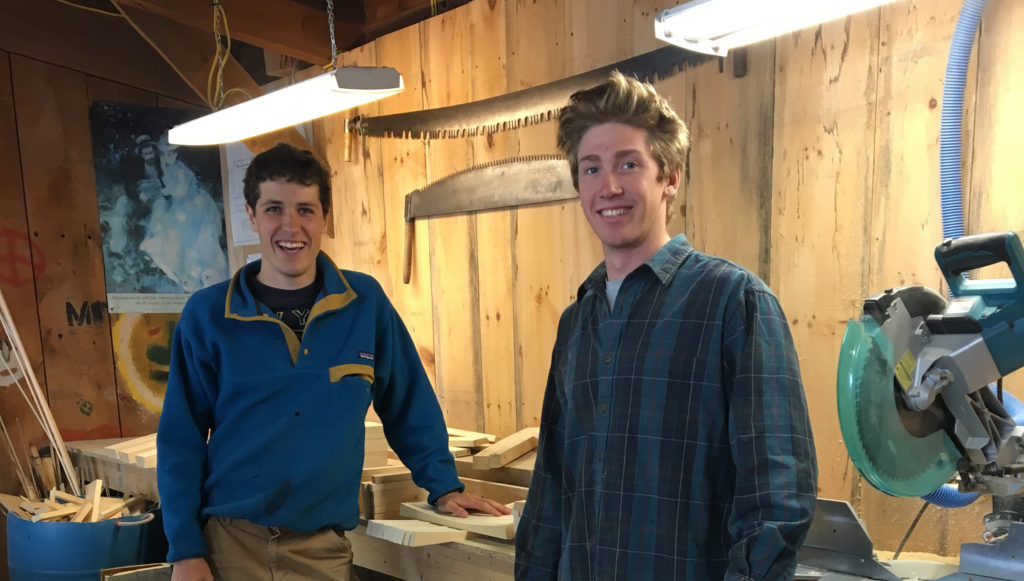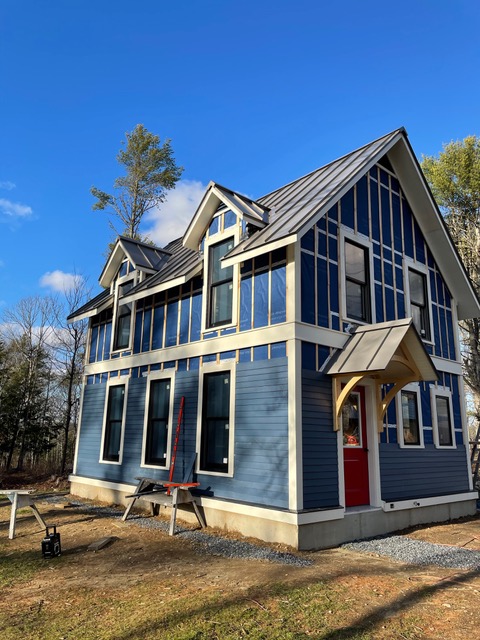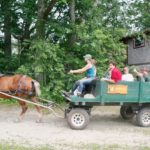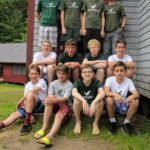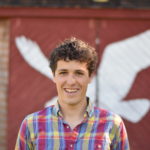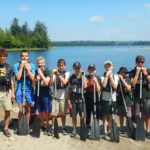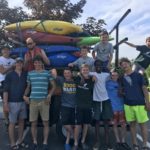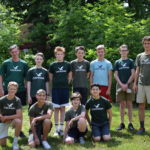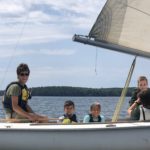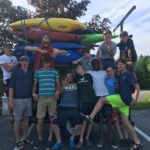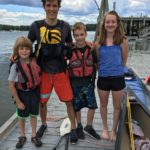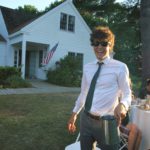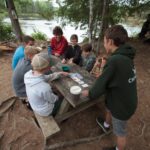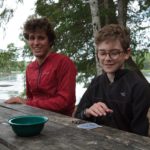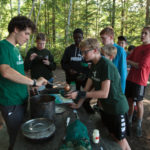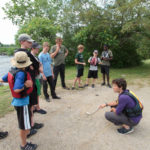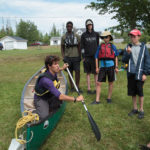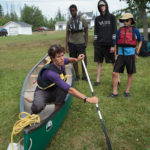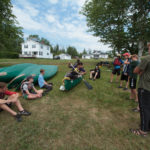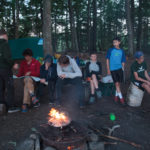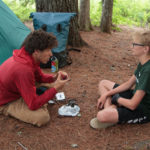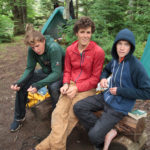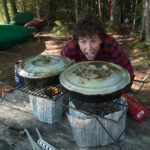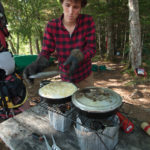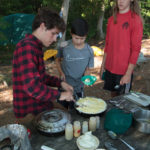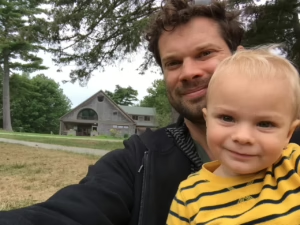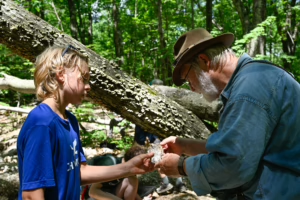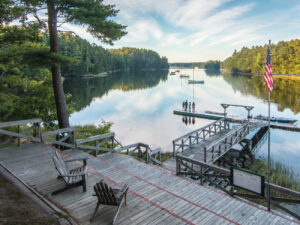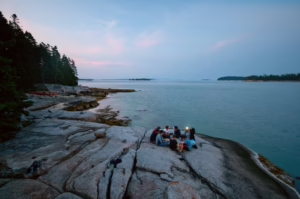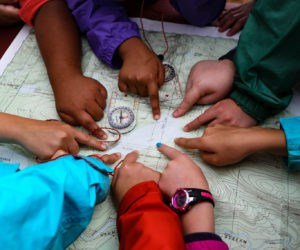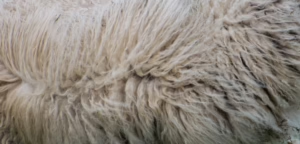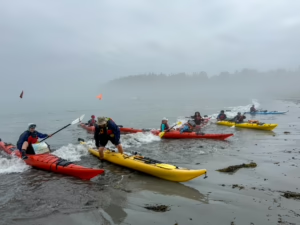The first thing most people notice about a house is the surface. And after diving into his own house building project to keep busy during the pandemic, it’s safe to say that alumni Angus Fake (Boys Camp ‘17,’18) will never look at a building so superficially again.
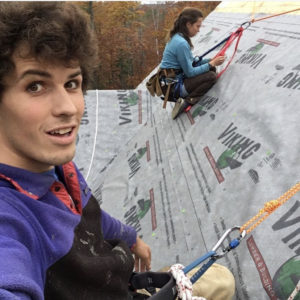
After the Covid-19 pandemic upended his senior year at Pratt Institute, Fake returned to his hometown of Newcastle, Maine, to stay with his parents (his mother, Lorna Fake, coincidentally, is our grades 1/2/3 teacher at Chewonki Elementary and Middle School), along with his partner, sister, and sister’s partner.
“There were six of us in the house, and it was hectic. We started joking that it would be great to have a cabin for more space,” says Fake. As the weeks progressed, the cabin idea morphed into a family house with modern utilities. Fake got more serious about it – particularly after Camp Chewonki was forced to cancel all in-person programming and Fake’s summer plans were lost along with it. “I had the time. My dad had time from work,” says Fake. They also had a little piece of land and had already milled the wood.
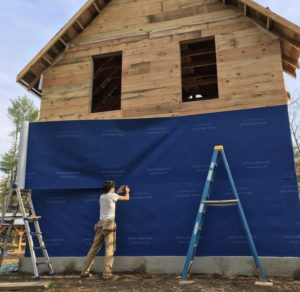
“I had a bit of carpentry experience. I’d done a lot of furniture making. I was optimistic,” said Fake, before candidly admitting that he really had no idea what he was getting into. “I thought it would be a summer project,” he says. With the end of the year just around the corner, the roof boards and house wrap have only recently gone into place.
Despite the miscalculation, Fake wouldn’t trade the experience for anything. “I think it’s changed my perspective on work,” he says. “There’s a sense of living in the moment; this is hard, but I only get to do it once, so I should take advantage of how special that is.”
The house project has given the young industrial designer an appreciation for every aspect of home construction – from milling lumber to laying a foundation. More than that, he’s learned that beyond knowledge and physical endurance, big dreams require passion, commitment, perseverance, and a genuine love of the work. These are the same qualities that Fake strove to cultivate in his 2018 Osprey Boatbuilders – a group of nine teenage campers whom Fake led in a seven-day mission to build and launch their own wooden kayaks.
It was a serendipitous effort that took shape based on Fake’s carpentry skills, camper interest, and our boat shop’s availability that summer. Osprey campers are younger, and the building timeframe was shorter than the well-known five-week Boatbuilders Saguenay Sea Kayak program, so Fake chose a simpler vessel and constructed kits with a fellow counselor’s help before the session began. He based the plans on notes and diagrams from Scott Peterson, our long-time boat shop coordinator.
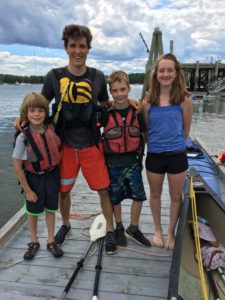 “I think it’s valuable for any kid to have an experience making something with your hands over an extended period,” says Fake. “This was the biggest project, in terms of scale, complexity, and [time commitment] that these kids had yet tackled. It showed them what it was possible to accomplish if they kept going.”
“I think it’s valuable for any kid to have an experience making something with your hands over an extended period,” says Fake. “This was the biggest project, in terms of scale, complexity, and [time commitment] that these kids had yet tackled. It showed them what it was possible to accomplish if they kept going.”
“There’s an enormous amount of capability in people that you can find by pushing hard and taking on big challenges,” says Fake. “I’m learning what I can and can’t do.” And, just like sanding a boat, “which isn’t glamorous,” says Fake, “you learn to love it.”
Fake has become increasingly dedicated to the house project throughout the pandemic, at times devoting up to eighty hours a week. “I love it when something’s done,” he says, “because I know that I don’t ever have to do it again.” Working eighty hours a week is not something he would recommend, however, unless it’s as a camp counselor.
Fake’s father is a builder and has also been supportive of the project. “We talk about the process, how people will experience the space, is it up to code,” says Fake. “I’m glad to have the backing of my family.” Their presence has provided crucial encouragement. “You can’t be told enough times that you can do something. It never gets old.”

